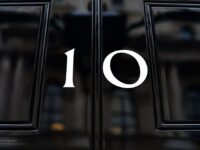The trade battle between Canada and the U.S. took a brief break last week as hours before the Trump tariffs were scheduled to take effect, President Trump agreed to a 30 day delay in return for various border measures. That brought a sigh of relief but no real sense that the issue is over. Indeed, quite the opposite – as future battles over tariffs and other measures appear very likely. Professor Richard Gold of McGill University’s Faculty of Law specializes in intellectual property. On last week’s Law Bytes episode, I referenced his proposal to consider suspending patents in key sectors such as pharmaceuticals and AI as a mechanism to counter US pressure. He joins me on the Law Bytes podcast to expand on his idea, explaining why there would be benefits for Canadian firms and frustration on U.S. firms that could spark domestic support to counter potential measures targeting Canada.
Post Tagged with: "lawbytespod"
The Law Bytes Podcast, Episode 225: How Canada Can Leverage Digital Policy to Retaliate Against Trump’s Tariffs
Canada now finds itself in economic war with the United States as President Donald Trump has levied a 25% tariff on all Canadian goods (10% for energy), which are scheduled to start on Tuesday. In response, Canada will levy retaliatory tariffs valued at $155 billion with $30 billion coming this week and another $125 billion in several weeks time. It is seemingly impossible to make sense of this deliberate targeting of an ally and claims this is linked to fentanyl that crosses the Canadian border into the U.S. doesn’t add up. Should this escalate further, the prospect of additional measures seem possible and that is where digital policy may come in. This week’s Law Bytes podcast examines the potential role of digital policy in support of retaliation against the Trump tariffs, including both defensive and offensive measures.
The Year in Review: Top Ten Law Bytes Podcast Episodes
The final Law Bytes podcast of 2024 released last week took a look back at the year in digital policy. With the podcast on a holiday break, this post looks back at the ten most popular episodes of the year. Topping the charts this year was a debate with Senator Julie Miville-Dechêne, who graciously agreed to come on the podcast to defend her Bill S-210. The Online Harms Act captured three of the top ten spots with additional focus on AI regulation, copyright, privacy, and media regulation.
The Law Bytes Podcast, Episode 223: Looking Back at the Year in Canadian Digital Law and Policy
Canadian digital law and policy in 2024 featured the long-delayed online harms bill, controversial implementation of streaming and online news legislation, as well as a myriad of notable copyright, AI, and privacy court cases. Government legislation stalled in the House of Commons, but with trade battles over a digital services tax, a competition case against Google, and plans to kick TikTok out of the country, there were no shortage of high profile issues. For this final Law Bytes podcast of 2024, I go solo without a guest to talk about the most significant developments in Canadian digital policy from the past year.
The Law Bytes Podcast, Episode 222: Robert Diab on Canadian Media’s Copyright Lawsuit Against OpenAI
Canada’s largest media companies came together recently to file a copyright infringement lawsuit against OpenAI, the owners of ChatGPT. I wrote about the suit, suggesting that the primary motivation behind the suit was likely the hope to kickstart settlement discussions with the hope of a licence. Robert Diab, a law professor at Thompson Rivers University, raised similar thoughts in his own piece on the lawsuit. Robert joins the Law Bytes podcast to discuss the case and its implications for copyright and AI in Canada.











